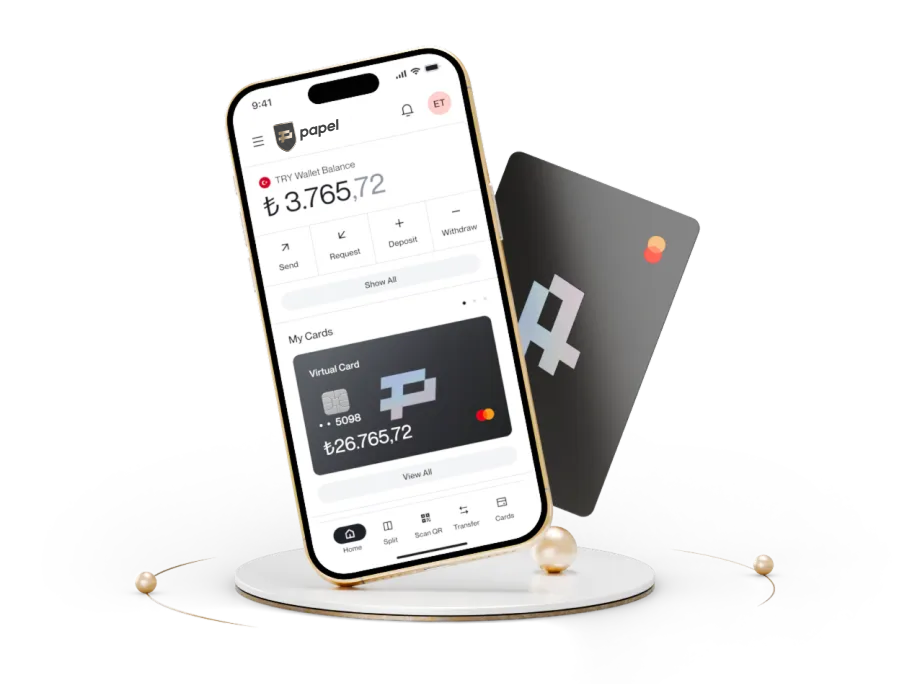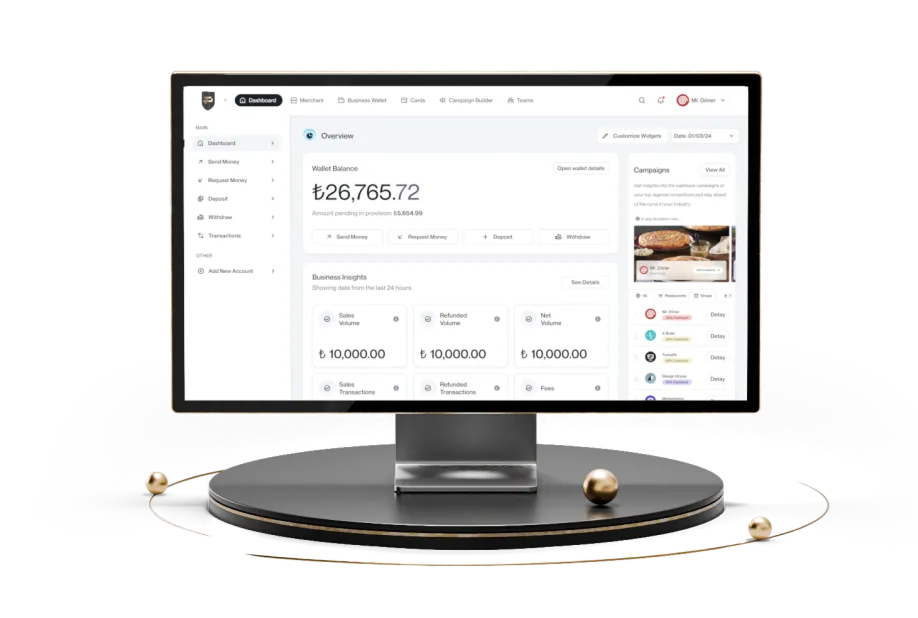A Guide to Credit Cards: Everything You Need to Know to Be a Responsible User
Credit cards, which have become an indispensable part of our lives, help us with daily expenses and emergencies. However, it is also a fact that misusing credit cards can lead to significant losses and stress. Therefore, understanding concepts related to credit card usage and being mindful is crucial, with benefits that cannot be underestimated. This comprehensive guide, ranging from basic credit card concepts to tips for proper use, will assist you on this journey.
What Are the Credit Card Types?
Credit cards are divided into different types based on their purposes and the benefits they offer. The most common types of credit cards are:
- Installment Credit Cards
- Reward/Cashback Cards
- Miles Cards
- Corporate (Business) Cards
- Student Cards
- Virtual Cards
Installment Credit Cards
Installment credit cards allow you to divide your spending into installments. They provide payment convenience, especially for high-value purchases.
Reward/Cashback Cards
With these cards, you earn points or cashback for every transaction. These rewards can be used as discounts in stores partnered with the card issuer.

Miles Cards
Every transaction made with these cards earns you miles. Accumulated miles can be used for travel-related services like flight tickets or hotel bookings.
Corporate (Business) Cards
These cards, issued to company employees, allow for easy tracking of corporate expenses and provide various commercial advantages.
Student Cards
These cards offer unique campaigns and benefits for young people and university students. They usually have low limits and are often fee-free.
Virtual Cards
These cards exist digitally and are used for online shopping. Although not physical, they can function like credit cards through phones or wearable technologies.
History of Credit Cards in Turkey
Credit cards, first in the 1950s in the United States, were introduced in Turkey in 1968, initially used in Diner's Club restaurants. This card allowed users to pay for meals without needing cash. In subsequent years, banks began offering their credit cards. The widespread use of credit cards in Turkey started in the 1990s. As of 2019, approximately 4.5 million credit cards are issued annually in Turkey. With almost everyone owning at least one credit card today, the importance of proper usage continues to grow.

Key Concepts Related to Credit Cards
Before delving into the details, understanding basic concepts is beneficial. To use your credit card more efficiently and consciously, here are the fundamental terms you need to know:
- Limit
- Installment
- Interest Rate Spread
- Statement
- Minimum Payment
- Interest Rate
- Commission Fee
- Block
- Cash Advance
Limit
Banks assign a spending limit to credit cards based on the customer's credit history and financial situation. This limit may periodically increase depending on financial data. Not exceeding the limit while shopping with a credit card is essential.
Installment
An installment is a method of paying for a purchase in equal amounts over a specified period. The cost of the product is divided by the number of installments and paid monthly.
Interest Rate Spread
In installment purchases, the additional cost added to the cash price of the product is called the interest rate spread. In some cases, no spread is charged up to a certain number of installments; in others, a spread may be added regardless of the number.
Statement
A statement is a monthly listing of all credit card transactions, debts, interest, and commission fees. It includes payment dates, minimum payment amounts, total debt, and any interest charged.
Minimum Payment
As stated in your statement, the minimum payment is the smallest amount you must pay within the month. The minimum amount prevents late payment interest from accruing but does not close the debt entirely.
Interest Rate
An interest rate is applied to the remaining balance if the entire debt is not paid. This rate varies by card and bank.
Commission Fee
The bank charges fees for credit card transactions, such as international purchases, installment plans, cash advances, or service fees.
Block
A temporary restriction on a part or all of a credit card's use. Cards may be blocked due to security measures against suspicious transactions, unpaid debts, or exceeding limits.

Cash Advance
Cash advances are the process of withdrawing cash from a credit card. They usually have higher interest rates and may incur additional fees.
Installment Spending
Installment credit cards facilitate payment for high-value purchases. However, the payment plan is critical. Points to consider while making installment purchases include:
Staying Within Your Budget
While installments make payments manageable, it's essential to consider the total debt amount. Spending beyond your means can lead to difficulties during repayment.
Interest-Free Installments
Some campaigns offer interest-free installment options. Opting for such campaigns can help you avoid interest charges.
How to Increase Your Credit Card Limit?
You can request a credit card limit increase by contacting your bank or using mobile banking applications. However, banks evaluate specific criteria before approving a limit increase, such as:
- Credit Score
- Income Level
- Regular Usage
Credit Score
Regular credit card debt payments and a positive financial record can improve your credit score, making it easier to increase your limit.
Income Level
Banks review income status before increasing your limit. Your request will likely be approved if your income adequately supports your current limit.
Regular Usage
If you regularly use your card and make timely payments, the bank may see you as a reliable customer, improving your chances of getting a limit increase.
Tips for Better Credit Card Usage
To make the most out of your credit card, here are some recommendations:
- Use It According to Your Needs
- Avoid Using Multiple Cards Simultaneously
- Take Advantage of Automatic Payment Instructions
- Use Your Card in Secure Environments
- Restrict Credit Card Usage
Use It According to Your Needs
Avoid unnecessary purchases just because you have a credit card. Identifying your needs and using your card accordingly prevents payment difficulties at the end of the month.
Avoid Using Multiple Cards Simultaneously
Managing multiple cards can complicate debt tracking. Stick to a single credit card for easier budget management and to avoid potential problems.
Take Advantage of Automatic Payment Instructions
Automatic payment instructions for bills or statements help you avoid missing due dates, reducing stress.
Use Your Card in Secure Environments
Ensure you shop from reliable and well-known websites, especially for online shopping. If you suspect fraudulent activity, contact your bank immediately.
Restrict Credit Card Usage
Instead of using your credit card for all expeses, consider using a debit card for smaller purchases. Additionally, to prevent potential fraud, impose restrictions on domestic, international, and online shopping.

